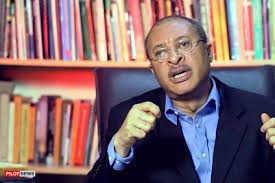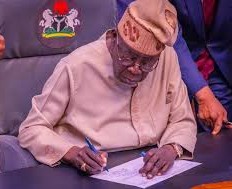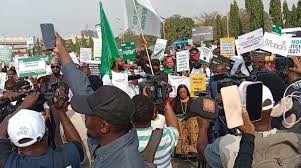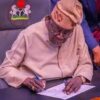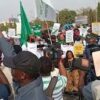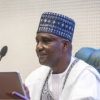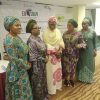The Federal High Court in Abuja has ruled that the proposal by Professor Patrick Utomi, a former Nigerian presidential candidate and distinguished economist, to establish a shadow government constitutes an unconstitutional act and is inconsistent with the laws of the country. On Monday, Justice James Omotosho of the Federal High Court issued an order restraining
The Federal High Court in Abuja has ruled that the proposal by Professor Patrick Utomi, a former Nigerian presidential candidate and distinguished economist, to establish a shadow government constitutes an unconstitutional act and is inconsistent with the laws of the country.
On Monday, Justice James Omotosho of the Federal High Court issued an order restraining the professor and his associates from moving forward with their planned shadow government, in response to a lawsuit by the Department of State Services opposing the creation of an alternative government.
The Judge ruled that forming a shadow government and cabinet exceeded the limits of Nigeria’s presidential system. After hearing from both parties’ lawyers and independent legal experts, the court determined the initiative is impractical.
“The Nigerian constitution makes no room for a shadow government.
“Section 14(2)(c) makes no allowance for a shadow government. The defendant cannot use foreign constitutional models to confuse the people. Such a shadow government is hereby declared void,” the judge ruled.
“Therefore, any participation in any government which is unknown to law will be struck down by this court. I hereby declare the formation as void,” the judge ruled.
Earlier this year, Professor Utomi, who was a presidential candidate of the African Democratic Congress (ADC) in the 2007 presidential election, announced the creation of a shadow government to fill the role of opposition against the ruling party, the All Progressives Congress, following the mass defections of former opposition politicians to the party.
Tagged as a “national emergency response” under the banner of the Big Tent Coalition Shadow Government, the professor of economics further announced that the opposition movement would consist of experts and politicians from other political parties to speak against policies undermining the Nigerian democracy and its dividends to the people.
Professor Utomi further announced that the coalition would also have a cabinet composed of members who would serve as a police watchdog, think tank, and provide alternative voices to the government. Some of the members of the cabinet are renowned lawyers and policy experts, among others.
Subsequently, the professor unveiled the cabinet members of the shadow government, which includes Nana Kazaure (Information), Riwang Pam (Security), Nike Omola (Women and Gender Development), and Peter Agada (Infrastructure, Urban Development and Housing).
But the DSS expressed its dissatisfaction with the development and dragged Professor Utomi to the court because it could lead to political unrest and be a tool for separatist movements to engage in unconstitutional activities that can pose threats to national security.
In the affidavit filed by the security agency, through its lawyer, Mr Kehinde Akinlolu, SAN, named Professor Utomi as the sole defendant and reaffirmed its statutory position as the body empowered to prevent the country from threats to the lawful authority of the Federal Republic of Nigeria and its constituent institutions.
Due to its role, the plaintiff urged the court to declare the shadow government and shadow cabinet planned by the defendant and his associates as unconstitutional, as it amounts to an attempt to create a parallel authority not recognised by the Constitution of the Federal Republic of Nigeria, 1999 (as amended).
It said that the court should rule that, based on Sections 1(1), 1(2), and 14(2)(a) of the Constitution, any government authority or structure that does not follow the rules of the Constitution of the Federal Republic of Nigeria, 1999 (as amended), is not valid and has no legal effect. It is unconstitutional, null, and void.”
The DSS stated, “Based on the intelligence gathered by the plaintiff, the activities and statements made by the defendant and his associates are capable of misleading segments of the Nigerian public, weakening confidence in the legitimacy of the elected government, and fuelling public disaffection.”
“The plaintiff, in the discharge of its statutory duties, has gathered intelligence confirming that the defendant’s actions pose a clear and present danger to Nigeria’s constitutional democracy.

